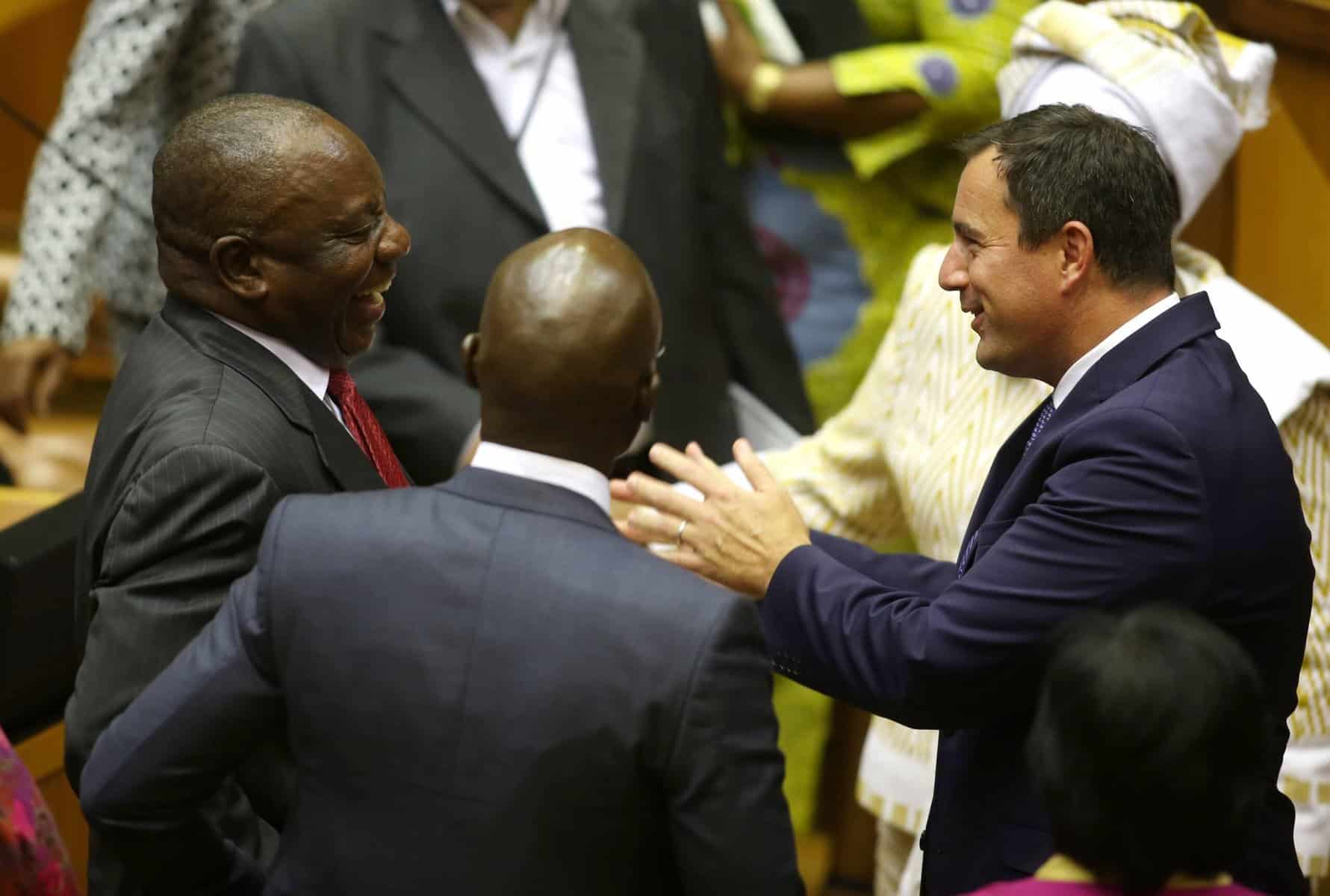the most notable achievement during the first 100 days would be that the parties in the GNU can keep it together.

It will be sink or swim for the new Cabinet in the government of national unity (GNU) once new ministers, their deputies and directors-general enter office.
The country is expecting change and won’t settle for anything less.
DA leader John Steenhuisen, expected to play a key role in the new Cabinet, said: “The low-hanging fruit in the first instance would be the shift in sentiment.
“We already saw sentiment start to shift when the agreement was first announced: on the day when the president was elected, with the rise in the rand and a huge rise in the stocks of all South African companies,” he said.
GNU must address SA’s economic challenges
Wayne Duvenage of Organisation Undoing Tax Abuse (Outa) said it would be imperative for immediate consultation with civil society and business.
“There must be immediate cooperation towards improvements, as well as an exposé of inefficiencies,” he said.
Law school head Daniel Govender of Regent School of Business stressed the importance of strengthening democratic institutions within national, provincial and local government and nurturing public trust.
Managing director Ray Langa of the Leagas Delaney Group said that the GNU must immediately address South Africa’s economic challenges and implement key initiatives.
“First and foremost is job creation. With unemployment at record highs, particularly among the youth, the government can launch public works programmes and support small businesses to generate immediate employment opportunities,” he said.
ALSO READ: Policy uncertainty in SA increased, but GNU could be positive influence
Analyst Thomas Garreau of Fitch ratings agency pointed out that South Africa’s short-term constraints have not changed.
These include “the difficulties in the energy and logistics sectors that heavily dragged on real GDP growth in 2023 and, to a lesser extent, in 2024.
“Access to reliable energy and to a performant logistics sector is key for some foreign investors, in particular in the primary and secondary sectors like mining and manufacturing,” he said.
If the announcement of the GNU, Steenhuisen said, would instil a new sense of confidence in the economy.
His views align with ratings agency economic concerns.
“That sentiment shift would then need to be built on by following it up with quick reform announcements around reforming the way government works, bringing in greater efficiencies, dealing with the debt and looking at other ways to boost employment, reduce crime and end load shedding.”
Improving healthcare, education
Langa said there were many initiatives that should get off the ground relatively quickly.
“Enhancing health care accessibility and improving education and skills development are vital steps.
“Deploying mobile clinics, increasing funding for community health workers and ensuring the availability of essential medicines can provide quick health care relief,” he said.
Investment in education and vocational training programmes would equip citizens with the skills needed for the job market, fostering long-term economic growth, he added.
On the flip side of the coin, Ian Pettey, managing director of Crown Relocations South Africa, said the prosecution of officials implicated in the Commission of Inquiry into State Capture report must be prioritised.
READ MORE: Will market optimism around SA’s GNU last?
But Outa’s Duvenage suggested that nothing would, in fact, be done about the many officials who have clouds over their heads.
“If the GNU allowed immediate and independent forensic investigations that either confirmed the veracity of allegations or debunked them, guilty parties could step out of parliament and be prosecuted,” he said.
He did not hold out much hope of this actually happening, Duvenage said.
Langa said addressing corruption through strengthened anti-corruption measures and ensuring accountability within the public sector was essential for restoring public trust and ensuring efficient use of resources.
“By focusing on these key areas, the new government can deliver quick, tangible results that will boost public morale and lay the foundation for sustained progress,” he said.
Cabinet Lekgotla
But not so fast, said University of Johannesburg research fellow Dr Oscar van Heerden.
“After the Cabinet is announced, the first order of business must be to set up a lekgotla to align policies, agree on implementation and to move forward thereafter,” he said.
The first 100-day countdown can only begin after that point, Van Heerden said.
“The urgency of a lekgotla cannot be stressed enough, and this is where all the statements of intent we have heard about until now can be thrashed out into tangible action,” he added.
Van Heerden suggested that the low-hanging fruit would be concretising a basic income grant to take people above the poverty line and expanded job creation programmes.
Above all, said Duvenage, the most notable achievement during the first 100 days would be that the parties in the GNU can keep it together.
NOW READ: SA’s political monopoly has been broken – Could it help the economy?
Support Local Journalism
Add The Citizen as a Preferred Source on Google and follow us on Google News to see more of our trusted reporting in Google News and Top Stories.






